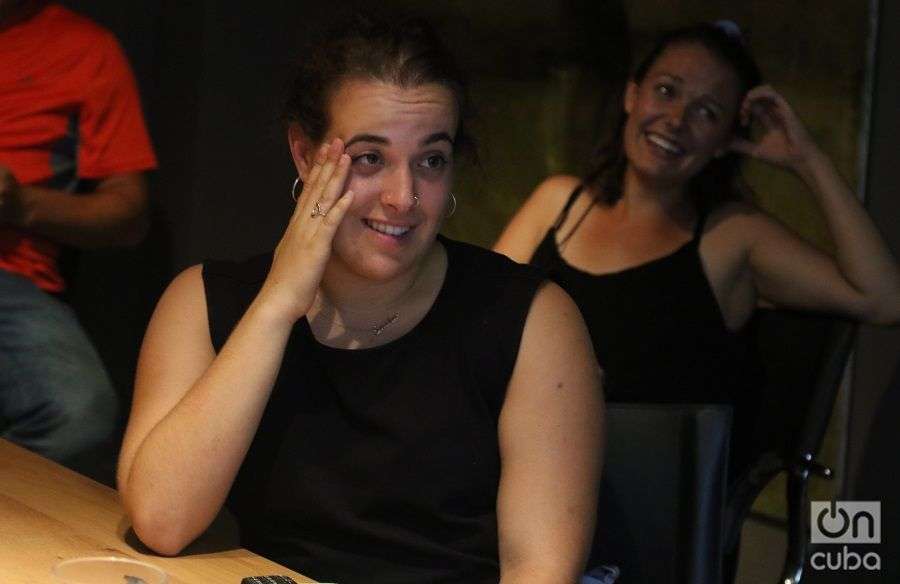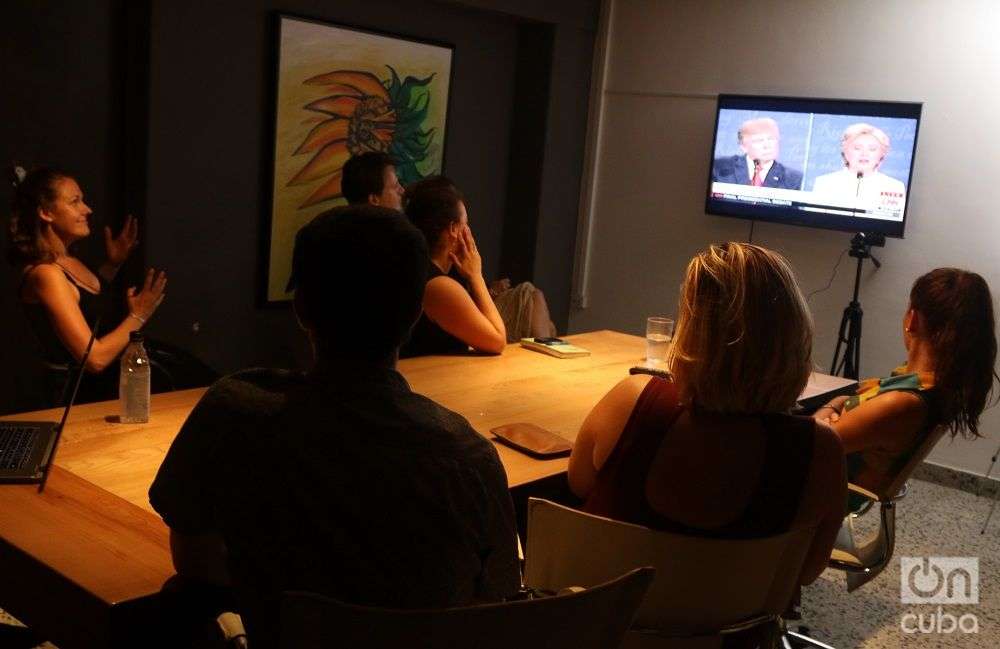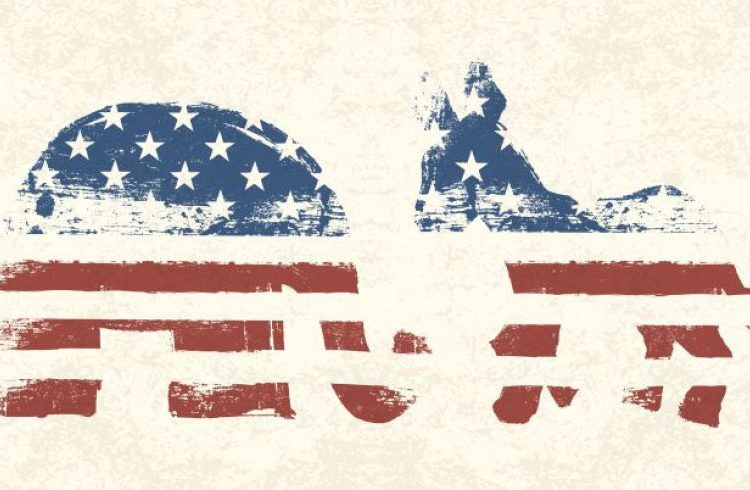The U.S. election campaign is generating conflicting feelings. From passion to apathy cover the range of positions as November 8 gets nearer, a complex and defining spectrum seasoned by presidential debates like the one that took place this Wednesday in Las Vegas.
That’s how U.S. university students visiting the island until next December commented on it. Part of an academic exchange program of the Consortium for Advanced Studies Abroad (CASA), whose venue in Havana is the Casa de las Américas, some of them watched the third debate in our magazine’s editorial department and did not remain impassive in the face of what both nominees said.

Disappointed and amazed, that’s how they were after the more than 90 minutes of verbal combat between Hillary Clinton and Donald Trump, a struggle that presented public opinion with a string of biting phrases.
Their collective expectations were not high, according to what several of them had confessed before the debate because of what they had already seen in the previous exchanges and the projections sustained throughout the campaign. But none of that drove away the disappointment.
“It didn’t look real to me, but rather like a big show,” Emma Gralvin, from Brown University in Rhode Island, said to us. “That frightens me because they are supposed to be the persons who could lead the country in the next years, and what they do is manipulate people’s fears and attack each other instead of touching more seriously on the debate’s subjects.”
“I believe once again there was a lack of depth,” adds Josh Davidoff, from Wesleyan University of Connecticut. “What predominated in the previous debates were insults and affirmations without a solid backing, with the nominees not explaining well how they would be able to concretize their campaign plans. In my opinion, now again there were too many insults and a lack of answers. The vice presidents’ debate seemed more serious to me in that sense. They were able to discuss their different positions in a civilized way and not like Hillary and Trump did again.”
Emma’s and Josh’s perception is not much different from what has been reported by analysts and the press. The generalized opinion noted that after half an hour of more serious and calm exchange about topics like the Supreme Court, abortion and arms control, the debate steered onto heated tracks and there was not a lack of interruptions, accusations and insults.
Precisely because of this, for several of these young people what happened in Las Vegas supposes an irrefutable conviction. “What we saw was what the people needed,” says Josh, “which nominee has the character to be president, beyond the rehearsed answers according to their own programs. An insult like that of ‘nasty woman’ which Trump dedicated to Hillary Clinton uncovers his real personality and shows, at least from my perspective, that we shouldn’t entrust the presidency of the country to someone like him.”
Such a perception places on the table the contradictions that these young people perceive within the U.S. election system. For many it’s a bad joke that someone like Donald Trump has been able to reach the official nomination of the Republican Party, a man who – as they heard in astonishment this Wednesday – was capable of diminishing the legitimacy of the very system by advancing he could not accept the election results.

“It still looks like a joke to me, more so after seeing what he is capable of saying in a debate,” opines Sasha Zients, from the New York University of Columbia.
That despite everything the magnate has the backing of many U.S. people is for her a symptom of the times the United States is living. “I believe that Trump’s nomination is the result of a real dissatisfaction. He is someone different from the traditional politician, and therefore he has represented an alternative for those who from a conservative position do not agree with the establishment and with what the current government has done. And neither can his recognition as a celebrity be forgotten.”
Such a vision, shared by several of these young people, sets off their alarm in two linked directions: abstention as a response and the possibility that, despite what the polls say, Donald Trump is elected president. None of these possibilities is attractive based on their ideal of country, but isn’t crazy either. For them, who now have the opportunity of voting for the first time, each ballot that goes into the ballot boxes is important.
“We cannot be overconfident,” points out Geoffrey Kocks, of Brown University. “I’m afraid Trump might win because he does have the followers and there are many persons who, although they support Hillary, have their reservations regarding the voting, they think that their vote is not important or that going out to vote on that day is a useless sacrifice. And we shouldn’t think like that. The followers of the nominee who is behind in the pools always go to the polls and that can be a point in favor.”
“I believe we should vote,” adds Hanna Roenfanz, from Vanderbilt University, Tennessee, “and do so for the person that can really be the best president, even if they are not the perfect person or politician. I live in Tennessee, which is a Republican state, and I’m sure Trump is going to win there, but even so I need to vote because it is a civic and moral question, because I want to take part in my government’s election. Abstaining would never be my option.”
With that spirit, some of these young people have already voted or are getting ready to do so from Havana, according to the mechanisms chosen by their respective states.
When asked by OnCuba they confess that they would have liked for the topic of the island to have some prominence in the debates, but they know that whoever is elected president will have to attend to many peremptory matters. Immigration, racial discrimination, the environment, the wars in the Middle East and the economic recovery are some of the directions in which they expect advances and not backward steps with regard to what has been done by the Obama administration.
The scenario is complex and they know it. What they saw in the debate feeds a great many insecurities. But at least they seem convinced about what they want and can do with respect to it. We’ll find out on November 8.










